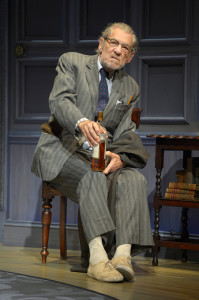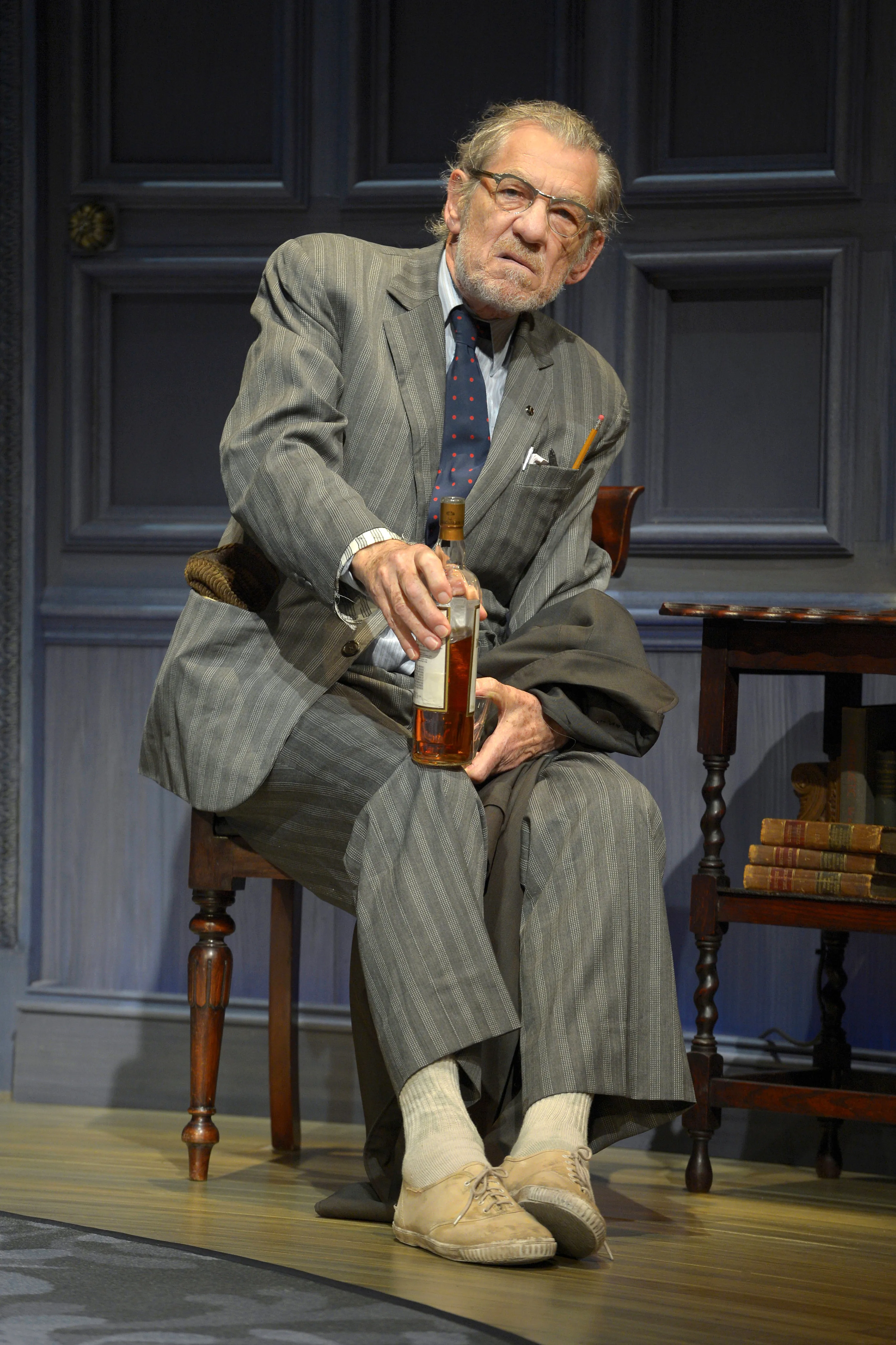Unless undertaken by very, very good actors under a strong director, Harold Pinter’s plays have the tendency to fall flat. Instead of his trademark pauses feeling pregnant, they can, instead, merely slow the action, which is minimal to begin with. The last major Bay Area Pinter revival was “The Caretaker” at the Curran Theatre, starring the impeccable Jonathan Pryce, but even this great performance wasn’t enough to leave you scratching your head with intrigue rather than confusion as you left the theater.

Director Sean Mathias’s star-studded “No Man’s Land,” which played at the Berkeley Rep in August and has since transferred to Broadway, is as close to perfection as any Pinter play can be. And it certainly helped that the cast had no weak link: British stage veterans Ian McKellen and Patrick Stewart are phenomenal, and Billy Crudup and Shuler Hensley prove solid in their supporting roles.
When the play opens, the garrulous Spooner (Ian McKellen) arrives at the home of the very laconic and wealthy Hirst (Patrick Stewart), whom he met earlier that evening at the pub. They plan to continue their drinking and discussion, but Hirst’s rotunda is not at all inviting: A single, lavish armchair and side table are in the center, a bar at the back and two single chairs on opposite ends of the room.
When Hirst takes his seat in the armchair, Spooner must prevent himself from seeming superfluous. McKellen here is positively brilliant: He moves around the stage with energy, prattling so as to pretend the situation is not awkward, and he never lets go of his hat and coat. Hirst is very still, until he crawls offstage in confusion, leaving Spooner alone and seemingly disinterested in leaving.
Then the tables begin to turn. Hirst’s servants arrive, claiming to be his kin, and try to scare off Spooner, who will not be deterred, until he finds himself locked in the rotunda overnight. In the morning, Hirst seems completely changed: Gregarious and open, he thinks he knows Spooner from his time at Cambridge, and they begin to trade verbal blows. Do the men really know each other? Is Hirst delusional? And if he is, why does Spooner indulge him, never leaving despite constantly claiming he has places to be?
Although the play offers no definitive answers, it’s not frustrating, because it matters less than the back and forth between the characters and why Spooner is so intent on keeping the ball in the air. That the play keeps us interested in asking the question is, no doubt, thanks to the interplay between McKellan and Stewart, whose virtuoso performances are enough to please even Pinter’s greatest detractors.
